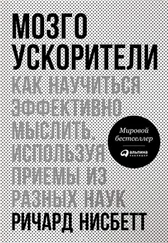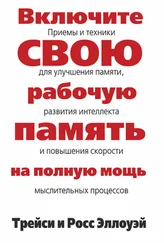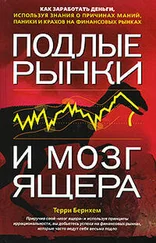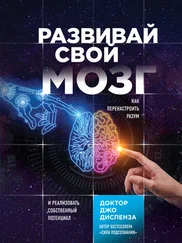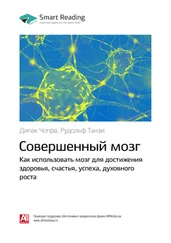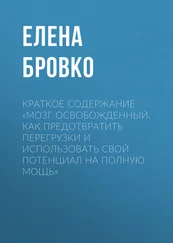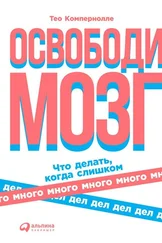The Effects of Interruptions, Task Complexity, and Information Presentation on Computer-Supported Decision-Making Performance. Cheri Speier. Decision Sciences. Volume 34, Number 4, 2003.
Juggling on a high wire: Multitasking effects on performance. Rachel F. Adlera, Raquel Benbunan-Fich. International Journal of Human-Computer Studies. Volume 70, Issue 2, February 2012, pp. 156–168.
Basex 2011.
Extraneous factors in judicial decisions. Shai Danzigera, Jonathan Levavb, Liora Avnaim-Pesso. Proceedings of the National Academy of Sciences of the United States of America. April 26, 2011, vol. 108 no. 17 6889–6892.
Making choices impairs subsequent self-control: A limited-resource account of decision making, self-regulation, and active initiative.Vohs, Kathleen D.; Baumeister, Roy F.; Schmeichel, Brandon J.; Twenge, Jean M.; Nelson, Noelle M.; Tice, Dianne M. Journal of Personality and Social Psychology, Vol. 94(5), May 2008, pp. 883–898.
Self-control: limited resources and extensive benefits. Jessica Alquist, Roy F. Baumeister.Wiley Interdisciplinary Reviews: Cognitive Science. Volume 3, Issue 3, pp. 419–423, May/June 2012.
Motivation, personal beliefs, and limited resources all contribute to self-control. Kathleen D. Vohs, Roy F. Baumeister, Brandon J. Schmeichel Journal of Experimental Social PsychologyVolume 48, Issue 4, Jule 2012, pp. 943–947.
Stress and open-office noise. Evans, Gary W.; Johnson, Dana. Journal of Applied Psychology, Vol. 85(5), Oct 2000, 779–783.
Self-control relies on glucose as a limited energy source: Willpower is more than a metaphor.
Gailliot, Matthew T.; Baumeister, Roy F.; DeWall, C. Nathan; Maner, Jon K.; Plant, E. Ashby; Tice, Dianne M.; Brewer, Lauren E.; Schmeichel, Brandon J. Journal of Personality and Social Psychology, Vol. 92(2), Feb 2007, 325–336.
Self-Control Without a “Self”? Common Self-Control Processes in Humans and Dogs Holly C. Miller, Kristina F. Pattison, C. Nathan DeWall, Rebecca Rayburn-Reeves and Thomas R. Zentall. Psychological Science, April 2010, vol. 21 no. 4, pp. 534–538.
Cognitive neuroscience of selfregulation failure. Todd F. Heatherton, Dylan D. Wagner, Trends in Cognitive Sciences, Volume 15, Issue 3, March 2011, pp. 132–139.
Dietary Restraint Violations Influence Reward Responses in Nucleus Accumbens and Amygdala.
Kathryn E. Demos, William M. Kelley, and Todd F. Heatherton. Journal of Cognitive Neuroscience. August 2011, Vol. 23, No. 8, pp. 1952–1963.
The Morning Morality Effect. The Influence of Time of Day on Unethical Behavior. Maryam Kouchaki. Isaac H. Smith. Psychological Science, October 28 2013.
http://www.linkedin.com/today/post/article/20130402091536-204068115-things-i-carry-smart-phonei-prefer-a-brilliant-assistant
http://www.jumio.com/2013/07/americans-cant-put-down-their-smartphones-even-during-sex/
McCann Advertising company campaign for tising company7/americ
http://www.mccann.com.au/project/phubbing-a-word-is-born/ http://www.youtube.com/watch?v=ZSOfuUYCV_0
Can you connect with me now? How the presence of mobile communication technology influences face-to-face conversation quality. Andrew K. Przybylski and Netta Weinstein. Journal of Social and Personal Relationships, July 19, 2012.
Emberson L. and Goldstein M., “Overheard Cell-Phone Conversations: When Less Speech is More Distracting,” Psychological Science. The effect of speech and speech intelligibility on task performance. N. Venetjokia, A. Kaarlela-Tuomaalaa, E. Keskinenb & V. Hongistoa. Ergonomics. Volume 49, Issue 11, 2006.
Indicative research, not very scientific, done amongst clients of the Gazelle trade-in company. Consumers Crave iPhone® More Than Facebook, Sex, According to Gazelle. www.prnewswire.com/news-releases/consumers-craveiphone-more-than-facebook-sex-according-to-gazelle-159430685.html
Stress: Friend and Foe. Theo Compernolle. Synergo.
The Machine Zone: This Is Where You Go When You Just Can’t Stop Looking at Pictures on Facebook. What an anthropologist’s examination of Vegas slot machines reveals about the hours we spend on social networks. ALEXIS C. MADRIGALJUL. The Atlantic. 31, 2013.
http://pewinternet.org/Commentary/2012/February/Pew-Internet-Mobile.aspx
http://www.webmd.com/mentalhealth/features/when-technologyaddiction-takes-over- your-life
Critical review. The Cell Phone in the Twenty-First Century: A Risk for Addiction or a Necessary Tool? Xavier Carbonell, Ursula Oberst, Marta Beranuy. Principles of Addiction, First Edition, 2013, 901–909. http://site.blanquerna.url.edu/condesa/wp-content/uploads/2013/07/The-Cell-Phonein-the-Twenty-First-Century.pdf
Prevalence of internet addiction in the general population: results from a German population-based survey. Kai W. Müller, Heide Glaesmer, Elmar Brähler, Klaus Woelfling, Manfred E.Beutel. Behaviour & Information Technology.
Adolescent Internet Addiction: Testing the Association Between Self-Esteem, the Perception of Internet Attributes, and Preference for Online Social Interactions. Giulia Fioravanti, Ph.D., Davide Dèttore, Ph.D., and Silvia Casale, Ph.D. Cyberpsychology, Behavior, and Social Networking. Volume 15, Number 6, 2012.
Behavioral Addictions: An Overview. Reef Karim D.O. & Priya Chaudhri Ph.D. Journal of Psychoactive Drugs.Volume 44, Issue 1, 2012, pp. 5–17.
Confirmation of the Three-Factor Model of Problematic. Internet Use on Off-Line.
Adolescent and Adult Samples. Beatrix Koronczai, M.A and others. Cyberpsychology, Behavior, and Social Networking. Volume 14, Number 11, 2011, pp. 657.
Internet Over-Users’ Psychological Profiles: A Behavior Sampling Analysis on Internet Addiction. Leo Sang-Min Whang, Ph.D.,1 Sujin Lee, Ph.D.,2 and Geunyoung Chang, M.A.1. Cyberpsychology & Behavior Volume 6, Number 2, 2003.
Modification in the Proposed Diagnostic Criteria for Internet Addiction. Keith W. Beard, Psy.D., and Eve M. Wolf, Ph.D. Cyberpsychology & Behavior Volume 4, Number 3, 2001.
An Outcome Evaluation Study on Internet Addiction. Seher Ozcan. Sahin Gokcearslan AWERProcedia Information. Technology & Computer Science. [Online]. 2013, 3, pp. 790–795. Available from: http://www.worldeducationcenter.org/index.php/P-ITCSP.
http://www.world-education-center.org/index.php/P-ITCS/article/view/1849/1637
Adolescent Internet Addiction: Testing the Association Between Self-Esteem, the Perception of Internet Attributes, and Preference for Online Social Interactions. Giulia Fioravanti, Ph.D., Davide Dèttore, Ph.D., and Silvia Casale, Ph.D. Cyberpsychology, Behavior, and Social Networking. Volume 15, Number 6 2012.
Should DSM-V Designate “Internet Addiction” a Mental Disorder? Ronald Pies, MD. Psychiatry (Edgmont). 2009 February; 6(2); pp. 31–37. http://www.ncbi.nlm.nih.gov/pmc/articles/PMC2719452/
Оригинальный текст: http://psychclassics.yorku.ca/Pavlov/.
Другой пример – многочисленные когнитивные искажения и эвристики, которые делают нас предсказуемо нерациональными (Predictably Irrational, Ariely D., Harper Collins, 2008). Но они были чрезвычайно полезны для первобытных людей: помогали в мире, где скорость реакций была гораздо важнее для выживания, чем способность к глубоким размышлениям. (Over breinblinddoeken en ezelsbreinbrugjes. Theo Compernolle. Marketing Jaarboek. pp. 52–61. Pimms NV. 2011.) См. также: Adaptive memory: Ancestral priorities and the mnemonic. Value of survival processing. James S. Nairne, Josefa N.S. Pandeirada. Cognitive Psychology 61 (2010) 1–22.
Читать дальше
Конец ознакомительного отрывка
Купить книгу




